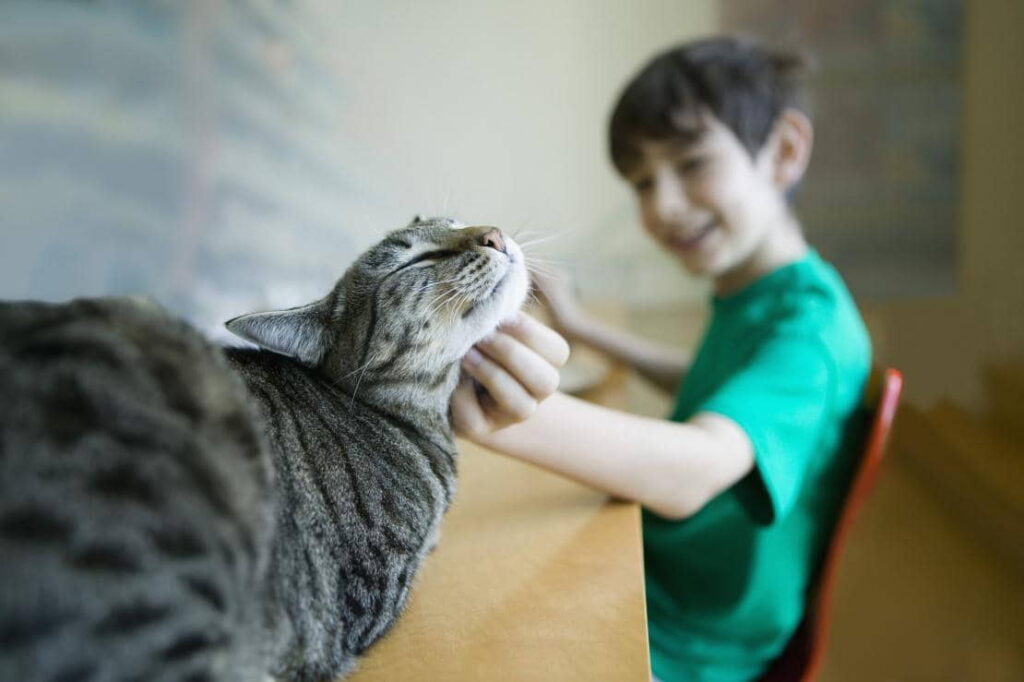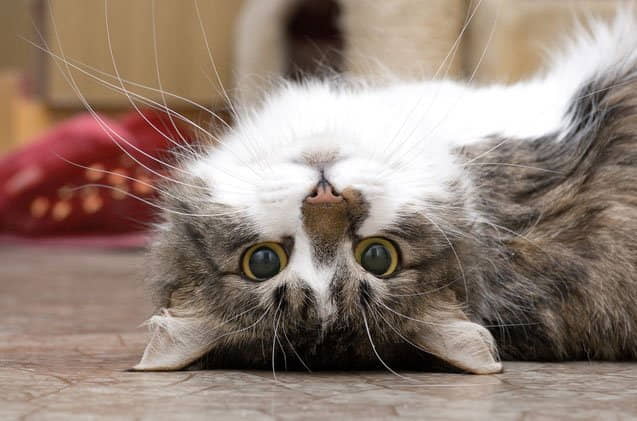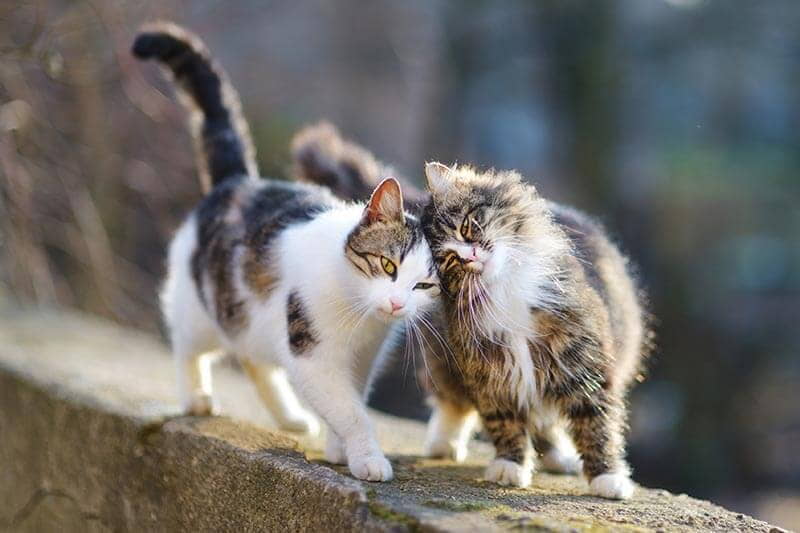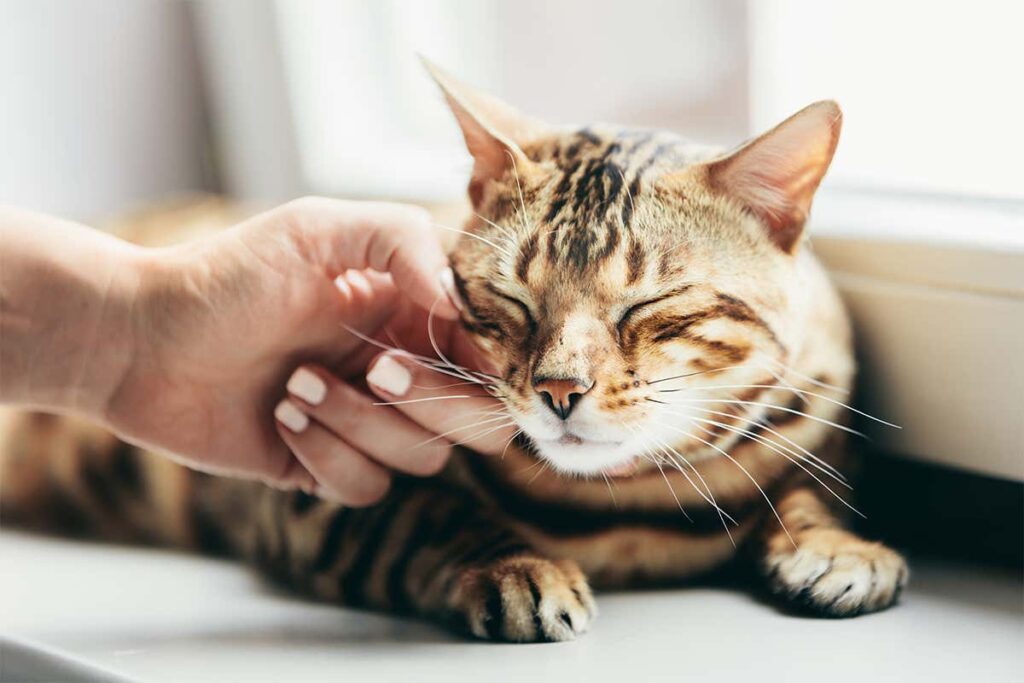Why do cats purr is a question scientists are still unable to answer. Pet parents believe cats purr because they’re happy. Studies show that cat purring restores tissue and bones, indicates stress, fear, pain and content, forms bonds and communication, as well as provides healing therapy, to cats, and humans.
Most research concludes that cat purring begins in the brain, from a neural oscillator that sends signals to the larynx, or voice box. As a cat breathes in and out with her diaphragm, air makes the vocal cords twitch, creating a vibration, or cat purr.

How many types of purrs do cats have?
While humans have simplified the meaning of cat purring, cats purr for more reasons than only fulfillment. Purring is proven to have multiple functions from communication and expression, to therapeutic healing.
Purr volume, frequency, duration and pitch play a role in why cats purr around human family members, alone and amongst other cats. Below are some of the answers to why do cats purr:
- Communication – At only a few days old, a kitten purring is communicating with her mother that she is nearby, well or that she needs feeding.
- Food – Solicitation Purring is used to ask for food from pet parents. Researchers have discovered that domestic cats combine purring and a high-pitched meowing to communicate that they are hungry and want meals. Studies show that this unique form of communication is perceived similar to a baby crying and therefore appeals immediately to humans.
- Socializing – Purring is often found in social situations amongst cats, while nursing, grooming, relaxing or bonding.
- Affection – Purring can be an expression of affection for other cats or people, and has been described as “the feline smile”.
- Soothing – A cat purring loudly might be a form of self-healing when in stress, pain, fear, in labor, or injury and there is evidence that the frequency repairs muscle, tendons, eases breathing and helps minimize pain and inflammation in cats.
- Healing – Purring vibrations range between 25 and 150 Hertz, the same frequency that promotes bone and tissue healing. Research confirms that high-impact exercise creates a similar frequency with the same results in humans.
- Therapy – Purring Therapy is not only soothing and helps a cat relax but there is evidence that healthy cats can provide purr therapy to other sick cats just by lying next to each other.
No kitty to enjoy a first-hand purring experience with at home? Listen to cat purring with a virtual Internet cat called Purrli. This free, soothing sound lets you control the depth, speed and intensity of cat purring online until you’re ready to take the next step to adoption.

Cat Purring Breeds

10 Benefits of cat purring for people
Pets at work or at home is proven to benefit people in many ways, but adopting a cat brings something truly unique to human health with purring. Therapeutic vibrations created from purring scientifically support:
- Bone growth
- Healing fractures
- Relieve pain
- Strengthening and repairing tendons and muscles
- Improve joint mobility
- Reduce joint swelling
- Ease breathlessness
- Lower risk of heart attacks and strokes by 40%
- Healthier sleep
- Reduce stress and anxiety

In fact, cat purring is so powerful that it piqued the interest of NASA, resulting in scientists creating a skinsuit that would help astronauts avoid losing 1% to 2% bone mass per month while on long missions. The innovative Gravity Loading Countermeasure Skinsuit pulses tiny, rhythmic vibrations between 25 Hertz and 150 Hertz, at the same healing frequency that cats do when they purr.
Find your purrfect adoptable cat match today
Search for your next furry best friend on Catfoodsite.
Wondering about Cat Toilet Training? Check it out on our latest post!
